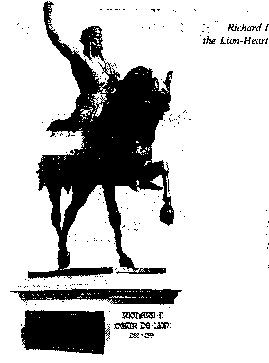
20
He used England's money to finance his crusades and other adventures, but he was not very lucky – returning
from his successful mission, he was captured, and was kept imprisoned in Austria, awaiting the payment of a
huge ransom.
He returned to England to stop his younger brother John from usurping the throne, soon after, he rushed to
fight King Philip of France who had supported John. Philip was defeated but Richard was killed in a siege of a
castle.
His wife who never set foot in England, left no children. So, John (Lackland) (1199-1216), the youngest
son of King Henry II, continued the dynasty's rule.
King John Lackland was the most unpopular king: he lost most of his French possessions; he broke his
father's heart with his misbehavior, he rebelled against his brother, quarrelled with the Pope, etc. The list of his
stupidities and misdemeanours was endless but he did one good thing (or was forced to do it). In 1215 the
barons made him seal the Magna Carta, which, though it limited the prerogative of the Crown and extended
the powers of the Barons, has since become the foundation stone of an Englishman's liberty.
The pressure on the pocket is more quickly felt than the pressure on the mind - that is why John Lackland
was forced by his barons to seal the Magna Carta Libertata (the Great Charter of 1215). Pressed by the
demands of war, he had imposed taxes that irritated many of his most powerful subjects. The Magna Carta is a
document that dealt with privileges claimed by Norman barons. It was to become part of the English
constitutional inheritance, because the baronial claims for liberties were in time translated into the universal
language of freedom and justice. It was the beginning of limiting the prerogatives of the Crown.
During the struggle for the Great Charter (Magna Carta) the legions of barons openly opposed the King –
disobeyed him, did not pay taxes, raised an army of knights, enjoyed support of townsmen (London supported
them), the King was forced to seal the Charter.

